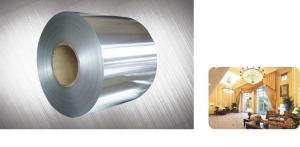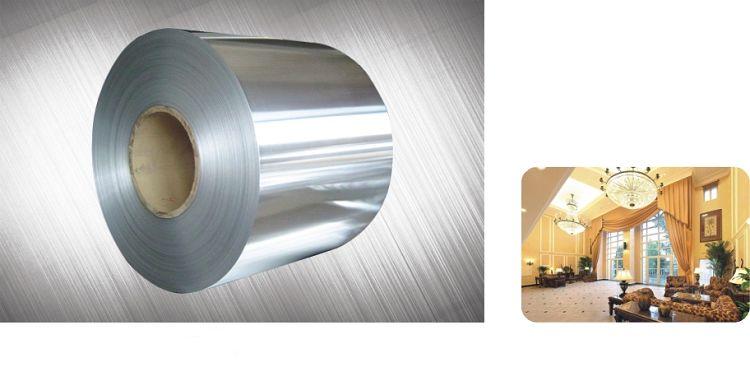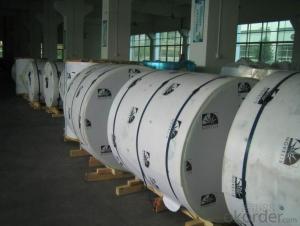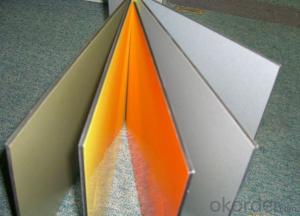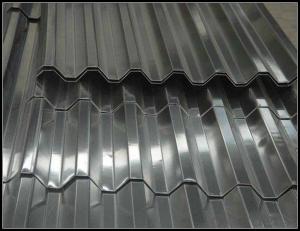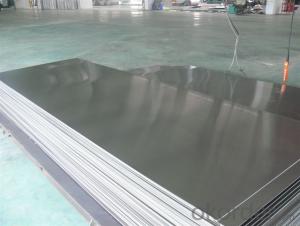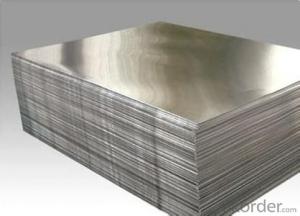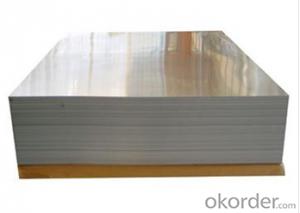Mirrorboard Cube Texture Aluminum Alloy Sheets
- Loading Port:
- China Main Port
- Payment Terms:
- TT OR LC
- Min Order Qty:
- -
- Supply Capability:
- -
OKorder Service Pledge
OKorder Financial Service
You Might Also Like
Mirror Acrylic sheet is a continuously processed product which exhibits outstanding optical properties, uniform thickness and a low stress level. Acrylic sheet is a lightweight, weather-resistant thermo plastic. It can be easily fabricated, formed, finished, cemented, painted and decorated.
Mirror stainless steel board is based on the 2B finish, and then make the further
processing. the technique is through using the griding syrup and polishing machine toremove the waterline traces, light scattering of the stainless steel
surface, then make the surface clean and like a mirror.
- Q: What specific treatments or coatings are required for exterior applications to ensure durability and protection?
- <p>Yes, for exterior applications, special coatings or finishes are often necessary to protect against weathering, UV radiation, and other environmental factors. These may include weather-resistant paints, UV-resistant coatings, and corrosion-resistant finishes. For example, in construction, exterior walls might be treated with a water-repellent coating to prevent water damage, while metal structures may require anti-corrosion coatings to withstand harsh weather conditions. The choice of coating depends on the material, climate, and specific requirements of the application.</p>
- Q: I'm trying a new brownie recipe for the holidays this year. My experiences with baking brownies is never good. After I've taken them out of the oven and let them cool, I can never get them out of the pan without them falling apart on me! Can I bake brownies in the pan if it's lined with aluminum foil? I think that may make them easier to get out. Also, the new recipe I'm trying is actually a cheater recipe that starts with devils food cake mix. These are going to be gifts for friends and coworkers, and I just want perfectly squared, clean brownies! Any tips or ideas?
- Do not use aluminum foil......there is a good chance it will still stick and leave little bits of foil on your brownies. I use parchment paper (and no wax paper will not work). I usually spray the pan with PAM cooking spray so the parchment paper will stay in place. Let the brownies cool completely and the entire thing should pop right out and you can slice it up.
- Q: im making a presentation and once i read through it it feels like its leading up to something but then goes flat. any ideas. my project ' steel cars compared to aluminium'
- Aluminium is extremely flammable. We use it in thermite welding and as solid rocket fuel. The Emperor Napoleon carried* an aluminium fork while the lower royalty had to make do with gold forks. *In those days people carried their table wear around with them same as we carry our car keys.
- Q: Can aluminum sheets be used for reflective insulation?
- Yes, aluminum sheets can be used for reflective insulation. Aluminum is highly reflective and has good thermal conductivity, making it an excellent choice for reflecting heat and reducing heat transfer. When used as insulation, aluminum sheets can reflect heat away from the surface, preventing it from entering or escaping the desired area. This can help in maintaining a comfortable temperature inside a building or protecting sensitive equipment from extreme heat or cold. Additionally, aluminum sheets are lightweight and easy to install, making them a popular choice for reflective insulation applications.
- Q: An aluminum clock pendulum having a period of 1.00 s keeps perfect time at 20 degrees celcius. (A) When placed in a room at a temperature of -5.0 Celcius, will it gain or lose time? (B)How much time will it gain or lose every hour.
- A for a swinging pendulum period T =2pi*√(L/g), where L is length of the pendulum, g=9.8m/s^2; metals shrink when cooled, so period will decrease, number of ticks per hour will increase, the clock will hurry up; B? period at t1°=20C° is T1=2pi*√(L1/g); ? period at t2°=-5C° is T2=2pi*√(L2/g); ? the law of linear extension says L2/L1= 1+s*Δt°, where s=23.1·10-6 (1/К°) is specific linear extension of aluminum, Δt°=t2°-t1°; ? thus T2/T1 =√(L2/L1) = √(1+s*Δt°) =f1/f2, where frequency f1= 1 Hz at 20C° or 3600 ticks per hour, hence frequency at -5C° is f2= f1/√(1+s*Δt°); therefore instead of 3600 ticks per hour the clock will do 3600/√(1+s*Δt°) ticks per hour; thus it will gain 3600*(1/√(1+s*Δt°) –1) = = 3600*(1/√(1 -23.1·10-6 *25°) –1) = 1.04 s/hour;
- Q: Can aluminum sheets be anodized with custom colors?
- Yes, aluminum sheets can be anodized with custom colors. Anodizing is an electrochemical process that creates a protective oxide layer on the surface of aluminum, and during this process, dyes can be applied to achieve a wide range of custom colors.
- Q: what is better for my 96 mustang gt. porting and polishing my stock heads or getting aluminum heads. also could i do a 3v conversion?
- Your car already has aluminum heads on it. I'm not sure if the 3v heads bolt on and if they did they would expensive. Porting and polishing is not easy and often very expensive. A lot of people do more harm than good. This is not a Gran Turismo game where you click a button. If I were you this is what I would do. 96-98 4.6 heads suck, bottom line. Your car put out 215 HP stock. In 99 Ford starting using what is called the PI head. The horsepower went up to 260 mainly because of the better heads. Search on OKordermotors or look at Ford Racing Parts, they sell the heads brand new for $375 a piece I think plus the intake for around $200. They will do much better than porting your heads and probably cost less too. If you really want to get them ported or get ported heads look into Patriot Peformance, they sell 4.6 heads already ported. Good luck.
- Q: Can aluminum sheets be reused or recycled after their initial use?
- <p>Yes, aluminum sheets can be recycled again after use. Aluminum is one of the most recycled materials globally due to its low cost of recycling and its ability to retain its properties even after multiple recycling processes. Recycling aluminum saves energy compared to producing new aluminum from raw materials, and it helps reduce waste in landfills.</p>
- Q: Can 101 aluminum sheets be used in the production of sporting goods?
- Yes, 101 aluminum sheets can be used in the production of sporting goods. Aluminum is a lightweight and durable material that is commonly used in the manufacturing of various sporting equipment such as baseball bats, tennis rackets, and bicycle frames.
- Q: Can the aluminum sheets be used for manufacturing solar panel frames?
- Yes, aluminum sheets can be used for manufacturing solar panel frames. Aluminum is a lightweight and durable material that is commonly used in the construction of solar panel frames due to its corrosion resistance and high strength-to-weight ratio.
Send your message to us
Mirrorboard Cube Texture Aluminum Alloy Sheets
- Loading Port:
- China Main Port
- Payment Terms:
- TT OR LC
- Min Order Qty:
- -
- Supply Capability:
- -
OKorder Service Pledge
OKorder Financial Service
Similar products
Hot products
Hot Searches
Related keywords
